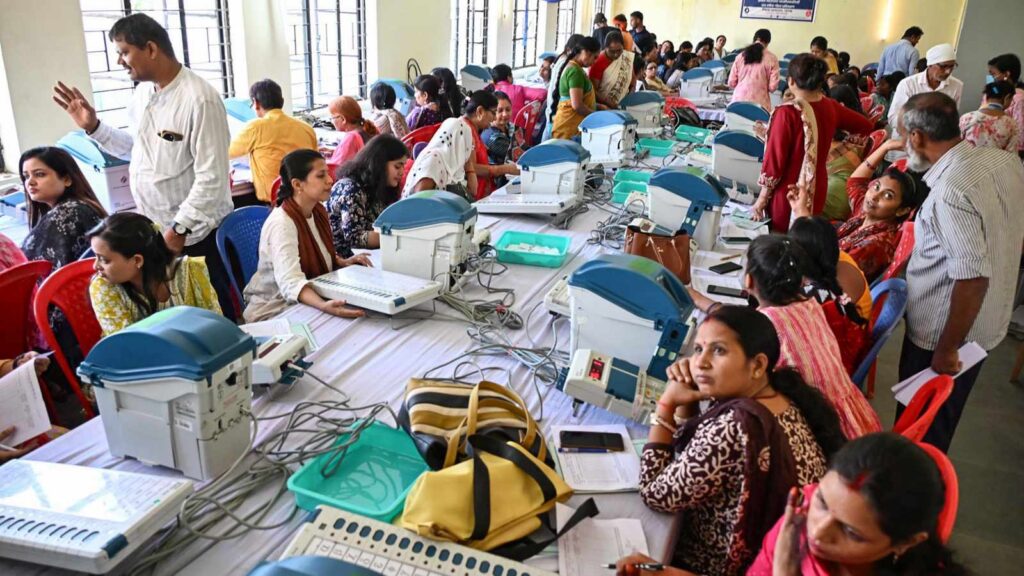In Kishanganj, the only Bihar district to share a border with West Bengal and Nepal, just two objections were filed against electors during the Election Commission’s (EC) Special Intensive Revision (SIR) on the basis of suspected non-citizen status, an analysis of the objections published on the state Chief Electoral Officer’s website shows.
The final electoral roll published on September 30 shows that the Electoral Registration Officer (ERO) rejected the objections as both the individuals, a male and a female elector of a single polling booth, made it to the roll.
Started on June 24 with an EC order, the SIR involved the preparation of the electoral roll afresh, rather than the usual annual revision that has been the norm for the past two decades.
All registered 7.89 crore electors of Bihar were required to submit enumeration forms by July 25 to make it to the draft roll. The draft roll published on August 1 had 7.24 crore electors, with about 65 lakh deleted after Booth Level Officers (BLOs) marked them either dead, absent, permanently shifted or already enrolled elsewhere.
After that, the EC allowed for a one-month period to file claims and objections till September 1. It is in that period that the objections were filed in Kishanganj as well. Kishanganj, which has Nepal to its north and Bengal to its east, has a majority Muslim population.
As per the Registration of Electors Rules, 1960, an elector of a particular constituency can file a Form 7 to seek deletion of either their own or any other elector’s name. The applicant has to select one reason for objecting to a name on the draft roll: “death”, “underage”, “absent/permanently shifted”, “already enrolled”, or “not Indian citizen”. The ERO then conducts an inquiry, calls the person objected to for a hearing and passes a speaking order, which is reflected in the final roll.
The data of the deletion applications filed in Kishanganj, as accessed on October 10, showed that a total of 1,905 such deletion forms were filed, of which only two or 0.01% were on the basis of “not Indian citizen”. The majority of deletion forms were filed with the reason “permanently shifted” (830), followed by “already enrolled” (489), “absent” (403), and “death” (181).
Out of the four Assembly constituencies in Kishanganj district, three – Bahadurganj, Thakurganj and Kochadhaman – did not have any objections on the basis of suspected non-citizen status. Kishanganj Assembly constituency had the two objections on the basis of citizenship. Both electors, with Hindu names, were in the same polling booth. And interestingly, both had objected to themselves as the CEO’s report had their names listed as the “objector” as well as “objected to”. These objections, however, were not sustained and both their names are on the final electoral roll published September 30. According to EC sources, the self-objections on account of citizenship could reflect an error at the time of data entry.
Over the past few years, the issue of alleged infiltration from Bangladesh into West Bengal and from there to Bihar and Jharkhand has been highlighted by the BJP during election campaigns.
Speaking at an event on October 10, Union Home Minister Amit Shah defended the EC’s SIR and said the Muslim population in the country had increased due to “infiltration”. Addressing the inauguration ceremony of the Purnea Airport in Bihar on September 15, Prime Minister Narendra Modi had said that “infiltrators” would have to leave. The BJP had raised the issue during last year’s Jharkhand Assembly elections too.
But Kishanganj’s Congress MP Mohammad Jawed dismissed the allegations by the BJP. “My simple question to the honourable Prime Minister and Home Minister is that why do they remember this at the time of elections? The truth is that the per capita income in Bangladesh before last year was $2,700 and in our part of eastern Bihar, it is $250. When we are forced to move to all parts of the country, from Siachen to Kerala, in search of work just to feed our families, do you think anybody would want to come here?” he told The Indian Express.
The BJP’s district president, Gopal Mohan Singh, however, said the SIR was necessary to clean up the electoral rolls, particularly to remove the names of dead people. “I don’t know about the number of non-citizens found as that is for the officials to know. But, their (alleged infiltrators’) population has increased over the past 10 years. In my village, which is 60-70km from the border, where crops used to grow now have full-fledged villages. Our double-engine government under Nitish Kumar is trying, but the Bengal government is not doing anything to stop this. It is all for their vote bank,” Singh said.
The data, however, shows that no elector was deleted on the basis of an objection for not being an Indian citizen in Kishanganj.

